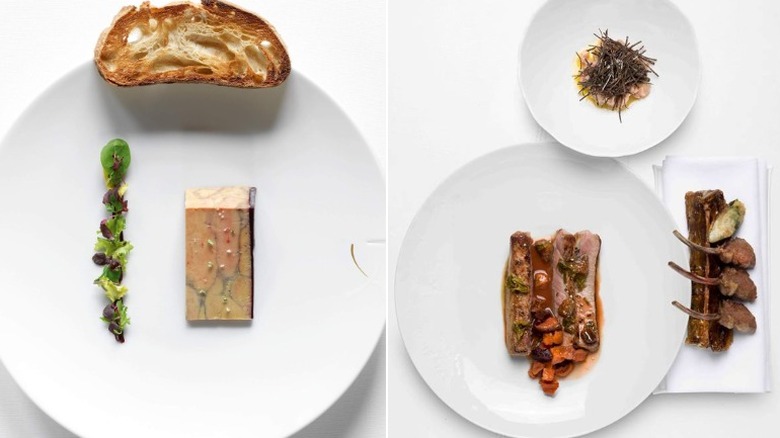Why Yannick Alléno Doesn't Want To Be Known For A Signature Dish
Award-winning chef and restaurateur Yannick Alléno, whose culinary talents and skills have been dazzling foodies around the globe for more than three decades, has granted his fair share of interviews to journalists over the years. But there is one topic on which he has tended to demur, and that's what he considers to be his signature dish. Rejecting the premise, Alléno takes the position that he'd rather not frame his oeuvre in terms of signature dishes at all. As he told Supper Magazine in an interview leading up to the opening of his new restaurant in London's Four Seasons Park Lane, "It puts me in a box, and I never want to be in a box." The most Alléno would give up is that if he has a so-called "signature" at all, it would be more accurately described as a personal imperative "to make people happy through good food, good wine, and good service."
While Alléno doesn't want his name tied to any one dish, he does feel comfortable being identified with an overall ethos and cited one dish as belonging to it.
Alléno may not have a signature dish, but there is one he considers exemplary
Rather than be associated with a dish, Yannick Alléno would prefer to be identified with his signature style of modern French cuisine – one that's ever-evolving and reaching new heights through curiosity, experimentation, and invention. One might argue Alléno's "secret sauce" is his perfectly calibrated sauce-making method, which he regards as the key to modernizing any classic cuisine.
Alléno's goal when cooking is to achieve a particular balance of flavors, specifically when a "contradiction between bitterness and salinity" is achieved, as he told Haut De Gamme. The dish Alléno believes does this in exemplary form is his salty, savory mousse made from pike, which is served with crusty bread and a celeriac-infused sauce. He wrote of this crowd-pleaser, which can be found on the menu of his landmark restaurant in Alléno Paris, "The celeriac brings out the minerality and the salinity of the dish, counterbalanced by the sweet bitterness of the toast."

